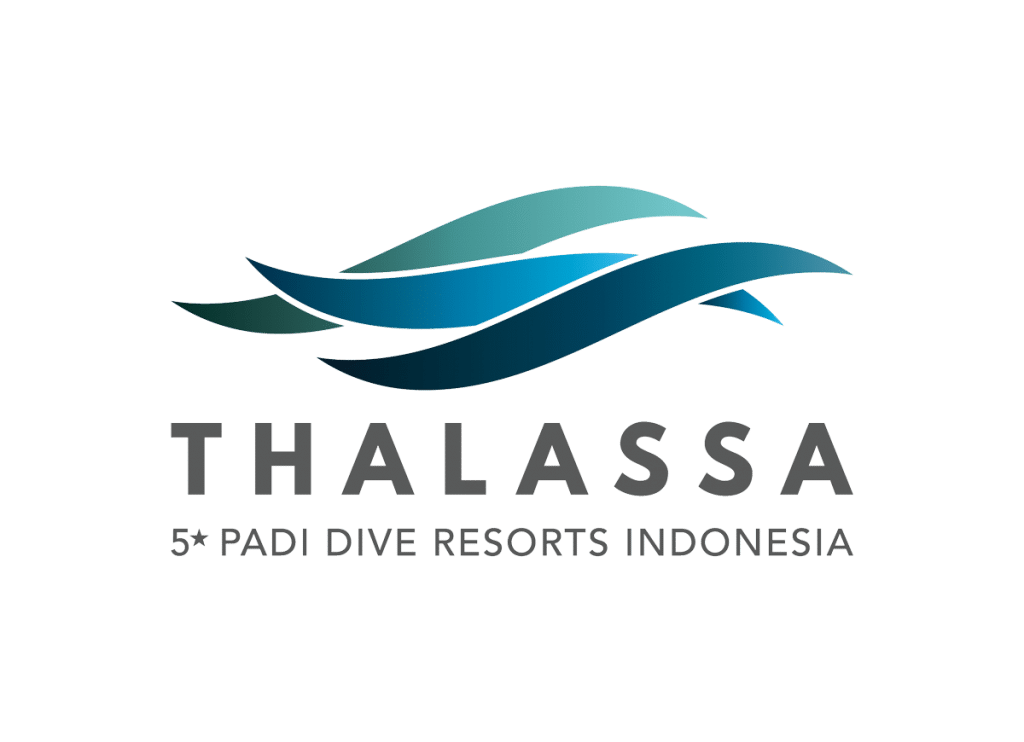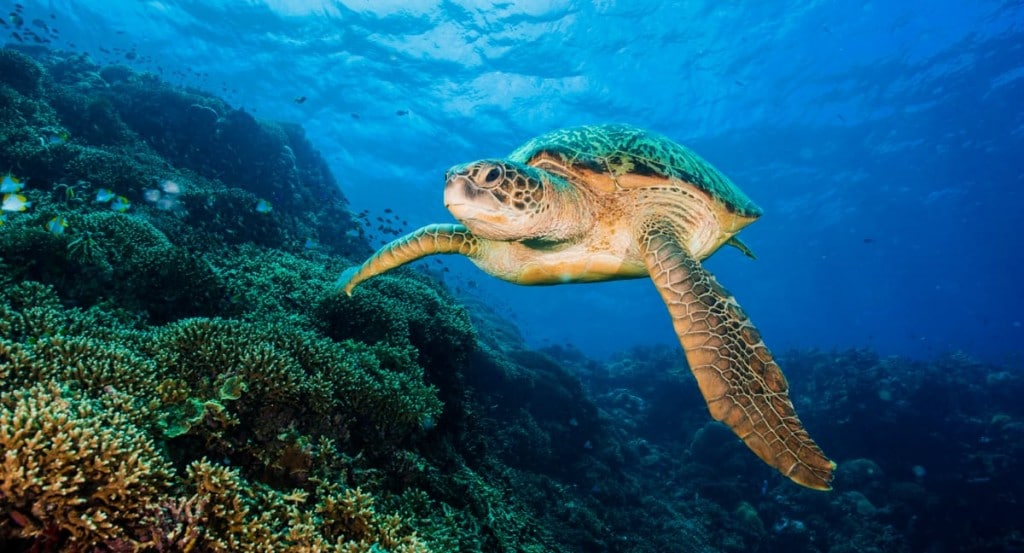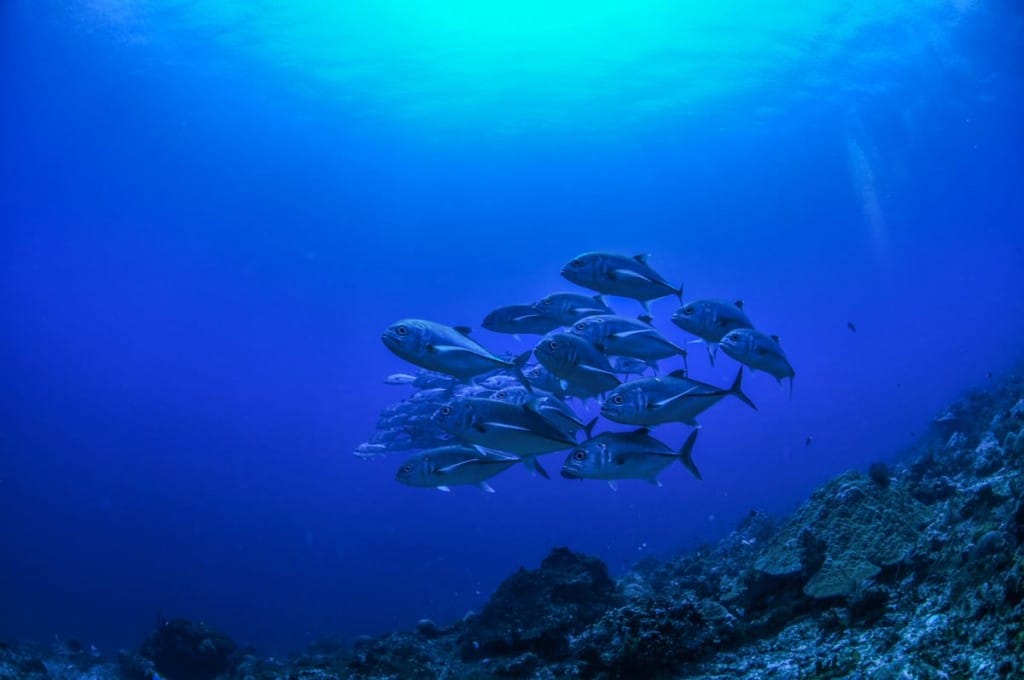News
Diving with…Simone Gerritsen, Thalassa Dive Resorts, North Sulawesi, Indonesia
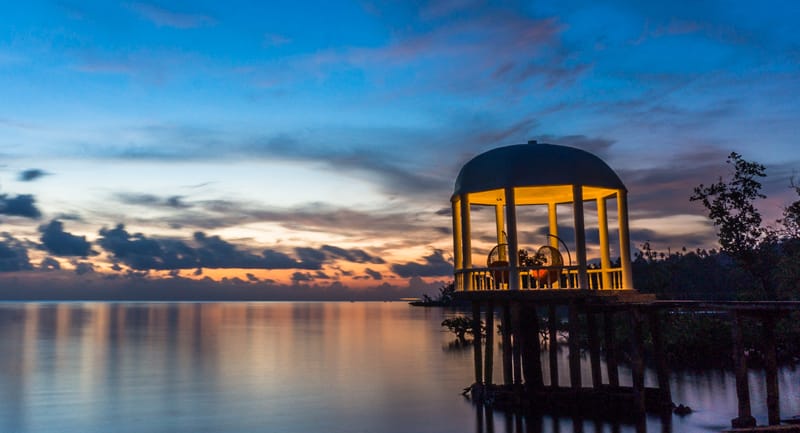
In this ongoing series, we speak to the people who run dive centres, resorts and liveaboards from around the world about their businesses and the diving they have to offer…
Simone Gerritsen
What is the name of your business?
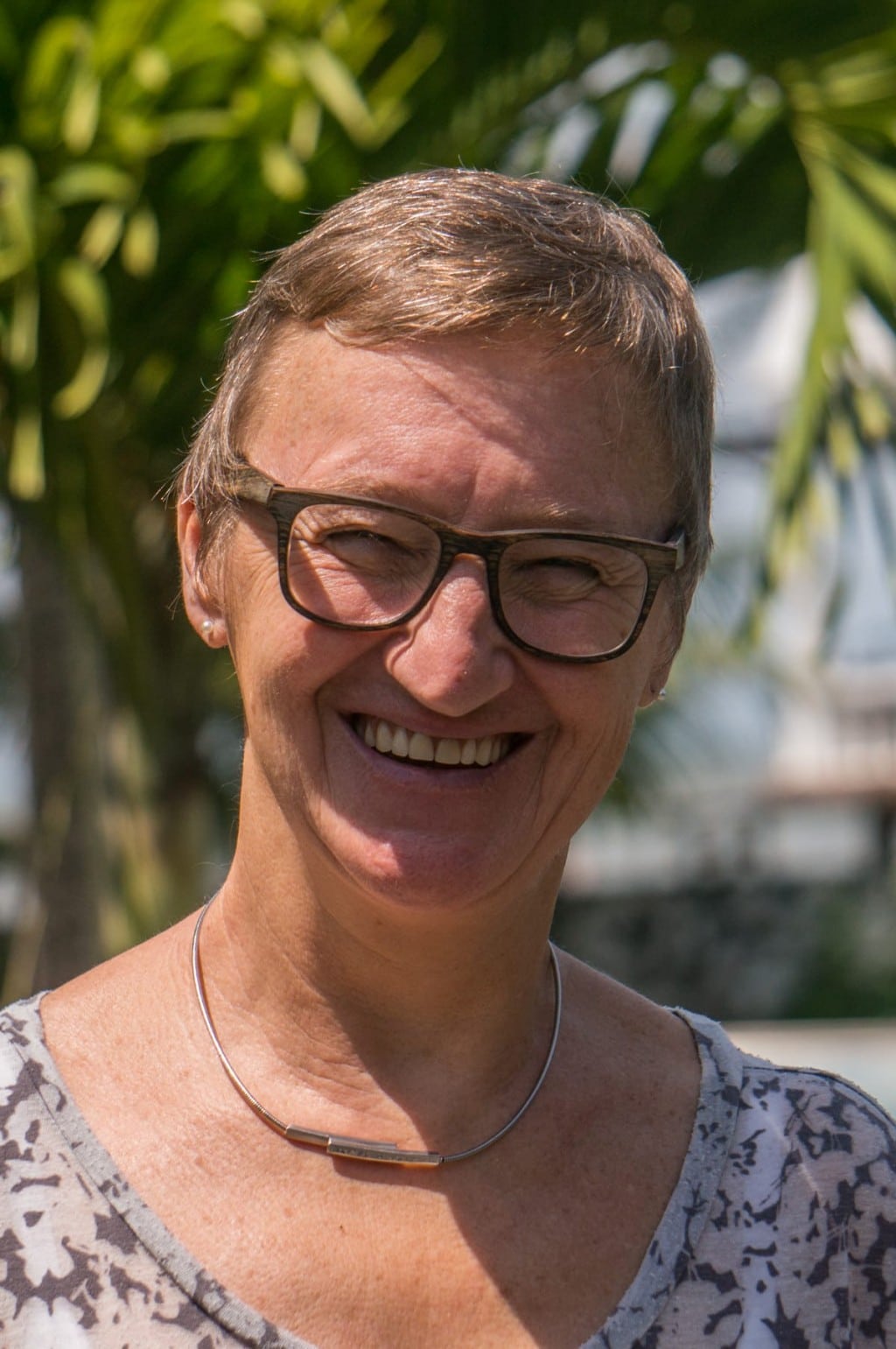 Thalassa Dive Resorts Indonesia
Thalassa Dive Resorts Indonesia
What is your role within the business?
I’m the founder and managing owner.
Over the years I became a bit of a mother figure to my team, since no-one can stop calling me ibu (“mother” in Indonesian).
How long has the business operated for?
In 1997 Thalassa started as a dive center embedded within a hotel in North Sulawesi, but in 2013 I got the chance to take over an old resort near Manado. In October of last year, we opened a second resort on the island of Lembeh, which we are super proud of. So in short, Thalassa exists about 5 years in its current incarnation as a dive resort.
How long have you dived for, and what qualification are you?
I did my first dive in 1978 which was quite unusual, because it was exclusively a boys’ club in those days. Being a PADI Course Director, I love to teach diving — especially to the less privileged local kids who want to become dive guides.
What is your favorite type of diving?
Just being in the water and teaching my class of dive guide students. Their ability to be neutrally buoyant is impressive from the get-go, and seeing them grow in their role as guides and divers pleases me no end.
If you could tell people one thing about your business (or maybe more!) to make them want to visit you what would it be?
North Sulawesi is not really on the radar compared to the more famous travel destinations, so this part of Indonesia is relatively off the beaten track — ideal for travelers who want to get away from it all and experience something different. You will find the Manadonese to be incredibly friendly and genuinely interested in foreigners, to the point of being very shy but delighted to get your attention!
We invest heavily in the local population: ten years ago, we built a junior + senior high school in a nearby village, and we keep the school in operation thanks to generous donations of guests, friends and family, all through a foundation that we set up. The school offers village kids the opportunity to pursue a career in the (diving) tourism industry, and many of our staff are alumni from the school.
What is your favorite dive in your location and why?
I love the yellow elephant ear sponges in our Manado house reef, because it looks like such an alien landscape. Another favorite of mine is called the Secret Garden, an old reef that’s in pristine condition.
What types of diving are available in your location?
You can do wall dives with an abundance of turtles hanging out among the corals, you can do muck diving, there are sloping sands with spots of coral life, and the pinnacle dive in Bangka is also quite a favorite. We have an interesting shipwreck in front of our Manado house reef and at our Lembeh house reef you can find an old fishing net that’s overgrown with corals.
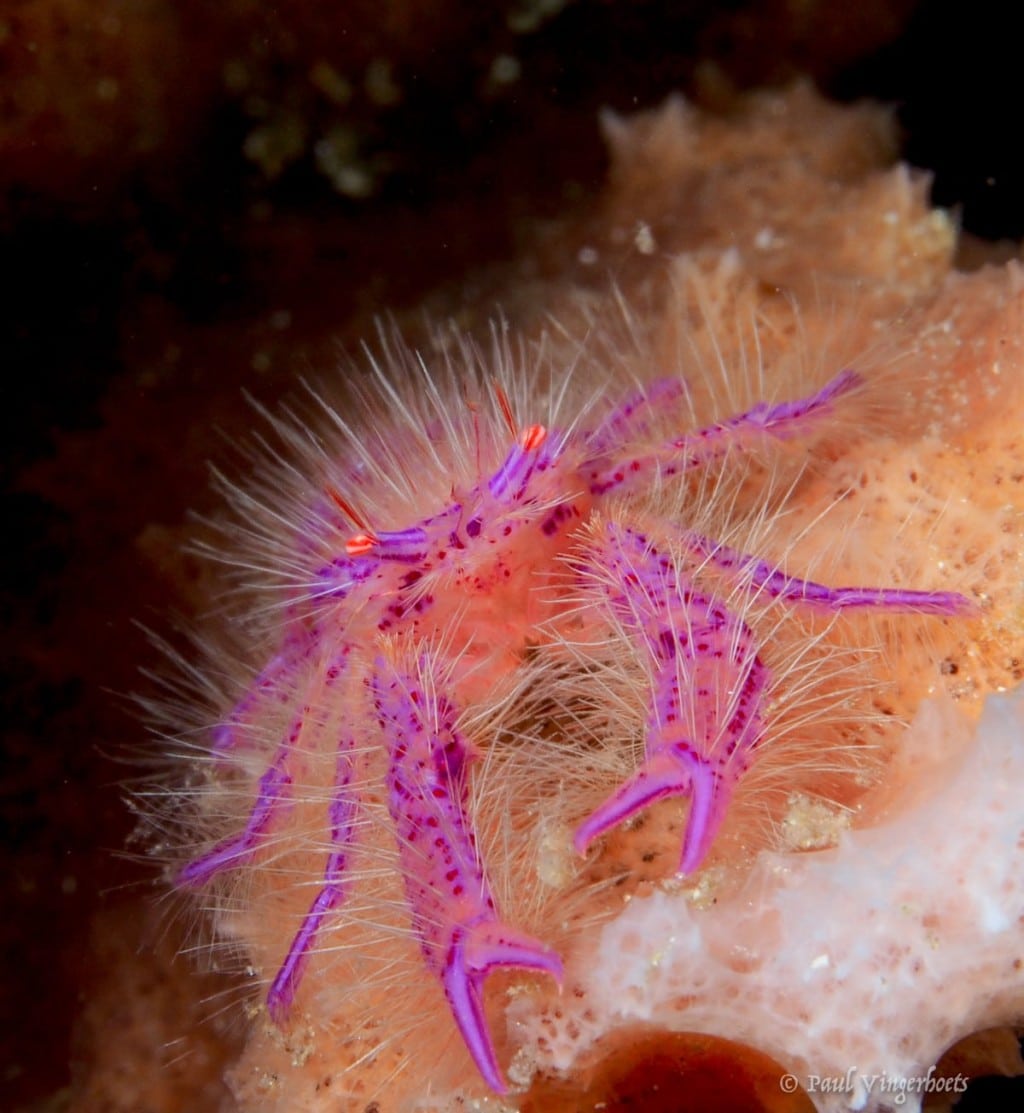 What do you find most rewarding about your current role?
What do you find most rewarding about your current role?
Seeing our guests having a great time, and hearing the excitement in their voices after a dive. It never gets old and is a constant reminder of why I chose to become a diver in the first place.
What is your favorite underwater creature?
I’d have to say that the humble sea cucumber is definitely a favorite of mine because they’re such bizarre creatures. Some of their feeding habits tend to be a bit unsettling, but they mean really well…
Are there any exciting changes / developments coming up in the near future?
After the long road getting Thalassa Lembeh up and running, I got some room to think about new plans for our resort in Manado, and this resulted in a plan to overhaul our main lounge and restaurant. Next to a lick of fresh paint and a new lighting scheme, we also removed the banisters separating the lounge from the “outside”, so that guests now have a nice view over the swimming pool and the ocean beyond. It really opened up the place and means that our guests have a veritable “garden” to relax in.
As a center what is the biggest problem you face at the moment?
As in many other parts of the world, floating waste is definitely an issue. We encourage our guests to pitch in and pick up whatever doesn’t belong on the ocean floor, as do all our guides and students of our school — all the little bits help. The problem is that there’s just not enough education on this subject, so with our community initiatives we want to combat this issue as much as we can.
Is your center involved in any environmental work?
Absolutely. I try to tackle problems by the root and educate my students about the environment, teaching them about the Atlantic/Pacific garbage patches and organize frequent beach cleanups with them. At the resort, we ask our guests to reuse their towels, we don’t use insecticides on our flora and we grow herbs in our spice garden. Upon arrival, our guests will receive a reusable water bottle which they can take home.
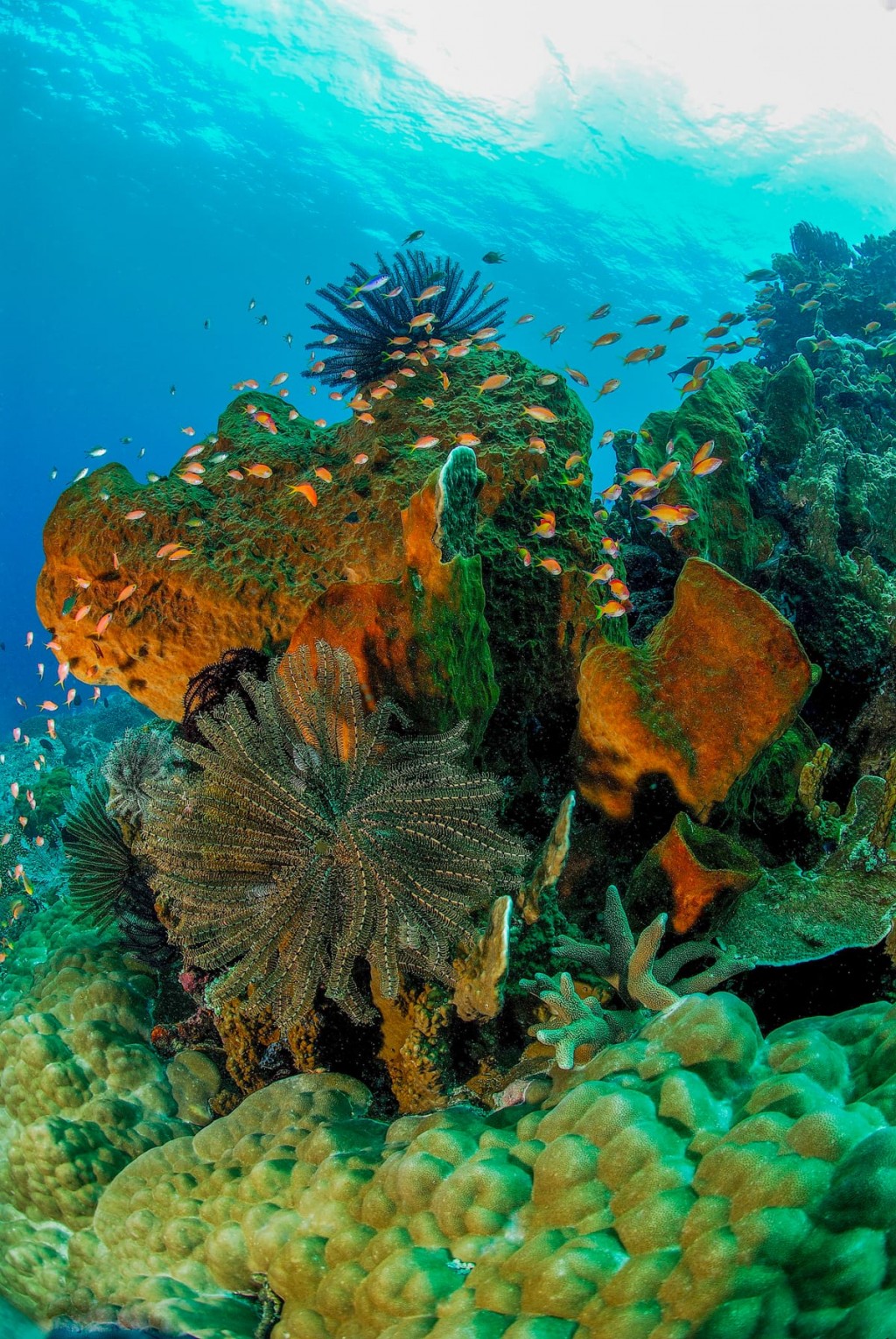 How do you see the SCUBA / Freediving / snorkeling industry overall? What changes would you make?
How do you see the SCUBA / Freediving / snorkeling industry overall? What changes would you make?
Over the past 40 years, the market has changed from an elitist hobby to something you do in addition to other hobbies and sports. Convenience has become a priority for people, with many guests diving only once or twice a year, instead of every weekend. Accessibility to some of the most fantastic dive areas in the world has increased significantly, which is how companies such as Thalassa are able to make their living — people come from all over the world to dive here.
If I could change anything, then I would love to see a higher luggage allowance on airlines, and more international connections.
What would you say to our visitors to promote the diving you have to offer?
As part of the Coral Triangle, diving in North Sulawesi is quite special. The marine life here shows enormous variety and if you like turtles, the Bunaken National Marine Park is full of them!
Over on the east coast of North Sulawesi, our new resort on Lembeh island is home to some of the most cunningly camouflaged and outrageously strange creatures. Macro photographers will be delighted to be diving with us in Lembeh.
Where can our visitors find out more about your business?
Our website: http://thalassamanado.com
Follow us: facebook.com/ThalassaDiveResorts
Send an email: info@thalassamanado.com
Send us a postcard or give us a call!
Thalassa Dive Resorts Manado
Jl. Raya Molas, Kecematan Bunaken
95242 Manado, North-Sulawesi
Indonesia
+62 81243500956
Thalassa Dive Resorts Lembeh
Batulubang Kecematan Lembeh Selatan 95552 Bitung, North Sulawesi
Indonesia
+62 82346864700
Gear News
Introducing the TR-80, IR-50 and CS-30 Regulators from DYNAMICNORD

Whether you are a beginner or a professional diver – with the three new main regulators from DYNAMICNORD, everyone will find their favourite regulator. They all look super stylish.
Excellent performance with the TR-80
Quality and performance are the be-all and end-all for regulators. It is not for nothing that the TR stands for Tec Reg. The innovative design of the TR-80 guarantees absolute reliability – even in ice-cold waters.

Perfect breathing effort at 0.8 J/l / certified for diving in waters below 10 degrees / structural design made of solid brass for best cold protection / membrane-compensated design with dry seal of the first stage / reduced exhalation effort thanks to optimized exhalation membrane and bubble deflector / adjustable Venturi (dive/predive) and adjustment knob for individual inhalation comfort / innovative design of the front cover prevents free-flow in strong currents or when diving with scooters / design made of sandblasted brass, matt chrome finish / 2 HP and 4 LP outlets / mouthpiece made of high-quality, anti-allergic silicone for maximum comfort.


Amazing underwater adventures with the IR-50
The IR-50 is the top regulator for advanced and experienced divers. Natural breathing is the essence of this regulator.

Ideal breathing effort at 0.8 J/l /certified for diving in waters below 10 degrees / compensated membrane / adjustable venturi (dive/predive) and adjustment knob for individual inhalation comfort/ outlet valve and deflector for minimum exhalation effort and reduction of bubbles on the face / design made of sandblasted brass, matt chrome finish / 2 HP and 4 NP outlets / mouthpiece made of high-quality, anti-allergic silicone for maximum comfort.


The Workhorse – our CS-30
For diving centres and diving beginners – the workhorse stands for strong construction, reliability and robustness. Perfect for your training.

Optimal breathing effort at 0.8 J/l /recommended for diving in waters above 10 degrees / non-compensated piston / adjustable venturi (dive/predive) / outlet valve and deflector for minimum exhalation effort and reduction of bubbles on the face / design made of sandblasted brass, matt chrome finish / 1 HP and 3 NP outlets / mouthpiece made of high-quality, anti-allergic silicone for maximum comfort.


Octopus OP-30
The OP-30 is the ideal addition to all DYNAMICNORD regulators. It is identical in construction to the CS-30.

The TR-80, IR-50, CS-30 (DIN & INT) regulators and the Octopus OP-30 are available from DYNAMICNORD dealers and in the online store.
DYNAMICNORD – Your Outdoor Companion.
Marine Life & Conservation
Paul Watson Released as Denmark Blocks Japan’s Extradition Bid

Renowned anti-whaling activist Paul Watson has been released from custody in Greenland after spending five months in detention. Denmark’s Justice Ministry rejected Japan’s request for his extradition, citing insufficient guarantees that his time already served in custody would be credited against any potential sentence.
The 74-year-old Canadian-American was arrested on July 21 in Nuuk, Greenland’s capital, when his ship docked to refuel. His arrest was based on a 2012 Japanese warrant related to a 2010 encounter in Antarctic waters. Japan alleged Watson obstructed operations and caused damage to a whaling research ship during efforts to disrupt illegal whaling. Watson has consistently denied these claims, maintaining his commitment to marine conservation.
Denmark, which oversees extradition matters for Greenland, concluded that while the legal conditions for extradition were met, the lack of assurances from Japan regarding time-served credit made extradition untenable.
In a video shared by his foundation, Watson expressed gratitude and relief, saying, “After five months, it’s good to be out… and good to know they’re not sending me to Japan.” He added that the most difficult part of his time in custody was being separated from his two young sons.
Watson is a pioneering figure in marine conservation, known for founding the Captain Paul Watson Foundation in 2022 after decades of activism with the Sea Shepherd Conservation Society. His bold efforts to defend marine life have earned him widespread support, including from celebrities and conservationists. His work has also been featured in the acclaimed reality TV series Whale Wars.
Watson’s lawyer, Jonas Christoffersen, praised the decision, stating, “We are happy and relieved that Paul Watson is now free.” He added that Watson is eager to reunite with his family and continue his vital work.
The arrest occurred while Watson’s vessel, the M/Y John Paul DeJoria, was en route to the North Pacific with a team of 26 volunteers to intercept a Japanese whaling ship. His foundation described the arrest as politically motivated and emphasized that Watson’s actions were focused on ending illegal whaling practices.
Japan resumed commercial whaling in 2019 after leaving the International Whaling Commission, asserting that whale meat is a cultural tradition. Conservationists, however, continue to challenge these practices, highlighting their impact on marine ecosystems.
Despite the challenges, Watson remains steadfast in his mission to protect marine life and bring attention to whaling practices. His dedication to ocean conservation has made him a globally respected advocate for the environment.
-

 News2 months ago
News2 months agoIconic SS United States to become the World’s Largest Artificial Reef
-

 News3 months ago
News3 months agoBook Review – 52 Assignments: Underwater Photography
-

 Gear News3 months ago
Gear News3 months agoDYNAMICNORD – New German diving brand enters the British market
-

 News3 months ago
News3 months agoExploring Cenote El Pit: A Diver’s Dream
-

 Gear News3 months ago
Gear News3 months agoTry BARE drysuits (and maybe even win one!) this Friday with Sea & Sea at North West Dive Fest
-

 Marine Life & Conservation3 months ago
Marine Life & Conservation3 months agoBook Review: Coral Triangle Cameos
-

 Blogs2 months ago
Blogs2 months agoDive the Egyptian Red Sea this Autumn with Regaldive
-

 News3 months ago
News3 months ago2024 Ocean Art Underwater Photo Competition Announced


